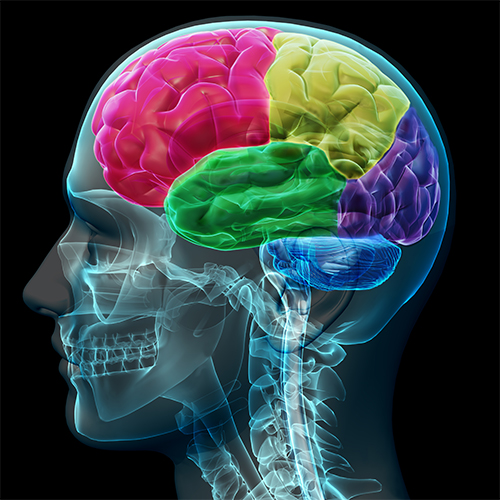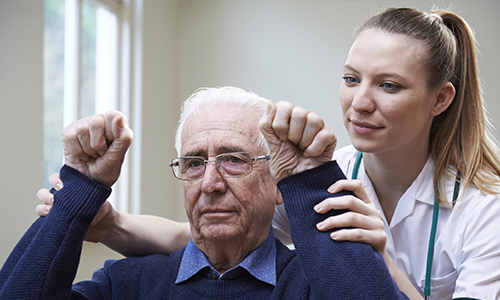Head Injury and Concussion Management Certificate

Learning Objectives:
The primary purpose of the Head Injury and Concussion Management Certificate Program is to provide education for timely recognition and appropriate response in identifying and making adaptations for head injury or concussion. The program provides an overview of traumatic brain injury and the identification of general conditions that are shown to promote post-injury wellness and recovery. The neurological, physical, psychological effects of head injury/concussion and how these areas are assessed and brought forth for early intervention and adaptations that can promote wellness and recovery will be explored. Effects of head injury/concussion on the family, employment, education, and social life will be reviewed as well as resiliency and protective factors supporting the recovery process.
Those who suffer a concussion are likely to sustain:
- Physical symptoms
- Sleep disturbances
- Emotional distress
- Cognitive-linguistic symptoms (thinking, remembering and communicating)
 Because symptoms are so varied, this certificate is appealing to a variety of professions
including those in the health and education fields - in all stages of their careers.
Most concussion symptoms resolve within 4-6 weeks. Unfortunately, some symptoms last
a lifetime.
Because symptoms are so varied, this certificate is appealing to a variety of professions
including those in the health and education fields - in all stages of their careers.
Most concussion symptoms resolve within 4-6 weeks. Unfortunately, some symptoms last
a lifetime.
Different types of symptoms lead to different treatments, which is the reason this program is a collaborative effort between the Departments of Human Services, Rehabilitation, Health and Sport Science, Special Education, and Communication Sciences & Disorders. This interdisciplinary program is taught by expert faculty/clinicians and developed with the latest trends and treatments in mind.
Highlights of the program include:
- Courses can be considered undergraduate or graduate
- 12-credit Interdisciplinary Online Certificate Program
- Seven week online classes are available
- PennWest Clarion is an approved Act 48 credit provider
Courses include:
- Post-Concussive Social and Emotional Wellness and Recovery
- Controversies and Implication of Concussions (MTBI) in Sport
- Teaching Individuals with Traumatic Brain Injury (TBI)
- Cognitive-Communication Disorders Associated with Brain Injury
 Great program for:
Great program for:
- Athletic trainers
- Case managers (broadly defined)
- Clinical Psychologists
- Coaches
- EMT's and Emergency Responders
- Geriatric care providers
- Guidance counselors
- Healthcare administrators
- Healthcare professionals
- Human resource professionals
- Medical social workers
- Mental health counselors
- Nurses
- Nursing home staff
- Physical therapy assistants
- Occupational therapy assistants
- Speech therapists
- Teachers
- Veterans groups
- Vocational rehabilitation counselors
Concussion or Mild Traumatic Brain Injury has dominated headlines in recent years and for good reason. According to the Brain Injury Research Institute, it is estimated that up to 3.8 million sport-related concussions occur annually in the United States.
One of the biggest populations to sustain sport-related concussions is children and adolescents with more than 630,000 children and youth brought to emergency rooms each year after experiencing such an injury. In Pennsylvania, approximately 22,000 concussions occur in children ages 0-21 years, according to the Center for Disease Control. In addition to children and adolescents, veterans and accident victims are at an increased risk for sustaining a brain injury and its symptoms.
The elderly are also at an increased risk for sustaining a mild traumatic brain injury/concussion. Mild traumatic brain injury occurs across the lifespan. There is a high percentage of individuals who deal with Traumatic Brain Injury (TBI) due to falls, as is often seen with the elderly. Brain injuries have been linked to early onset dementia and Alzheimers and is an ever growing public health issue.
Timely recognition and appropriate response is important for those who sustain this type of injury so they can be on the road to recovery.
Course sequence:
- REHB 434/534 Post-Concussive Social and Emotional Wellness and Recovery
- NFSS 465/565 Controversies and Implication of Concussions (MTBI) in Sport
- SPED 476/576 Teaching Students with Traumatic Brain Injury
- CSD 411/511 Cognitive-Communication Disorders in Traumatic Brain Injury
Estimated Costs
Undergraduate Credit Costs:
Per course cost (three credits) = $1,149.30 Pennsylvania resident
Per course cost (three credits) = $1,299.30 Non-Pennsylvania resident
Complete program total (four courses) cost = $4,597.20 Pennsylvania resident
Complete program total (four courses) cost = $5,197.20 Non-Pennsylvania resident
Graduate Credit Costs:
Per course cost (three credits) = $1,965.15 Pennsylvania resident
Per course cost (three credits) = $2,239.05 Non-Pennsylvania resident
Complete program total (four courses) cost = $7,860.60 Pennsylvania resident
Complete program total (four courses) cost = $8,956.20 Non-Pennsylvania resident
Please note: Once you have scheduled classes, there is a one-week drop/add period. Take advantage of the drop/add period in order to avoid paying for any courses you may decide to drop.
FOR MORE INFORMATION
For more information:
Jennifer May
Chair, Department of Human Services, Rehabilitation, Health and Sport Sciences
1 814 393 2052
Dr. Mark Lepore
Coordinator, Head Injury and Concussion Management Certificate Program
Associate Professor, Dept. of Human Services, Rehabilitation, Health & Sport Sciences
1 814 393 2474
Admissions at 1 800 672 7171, ext. 1.
